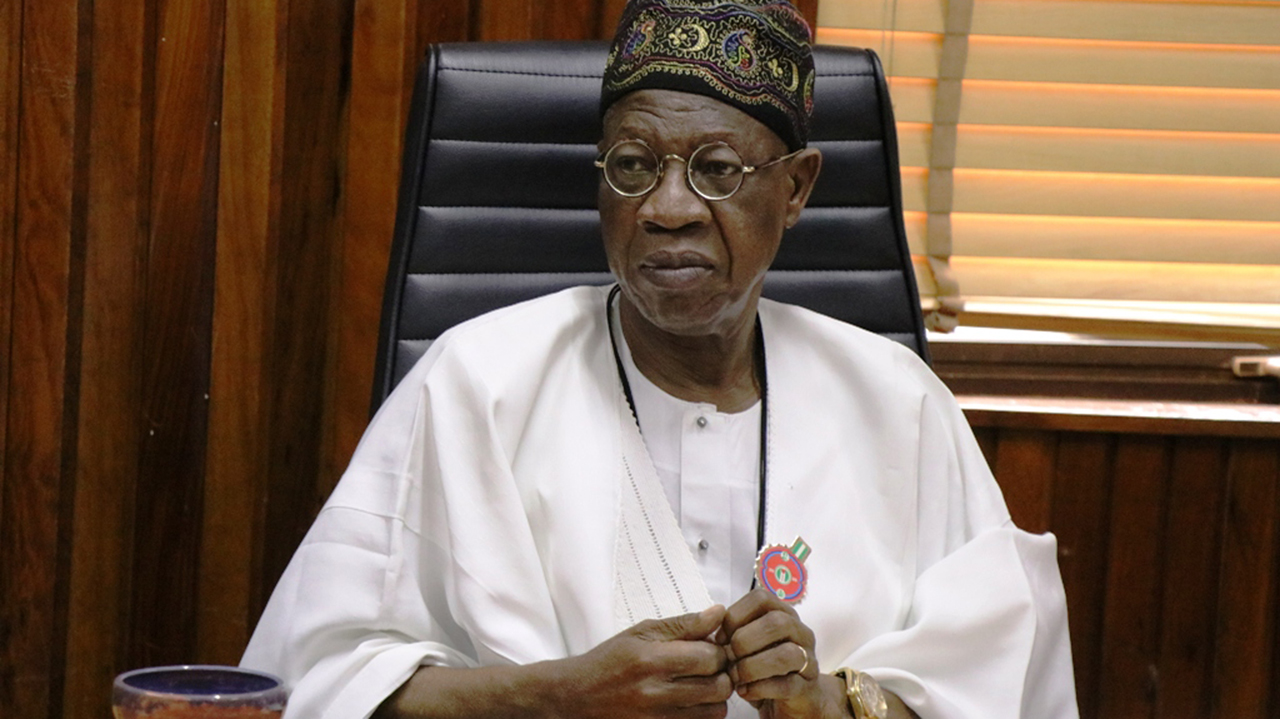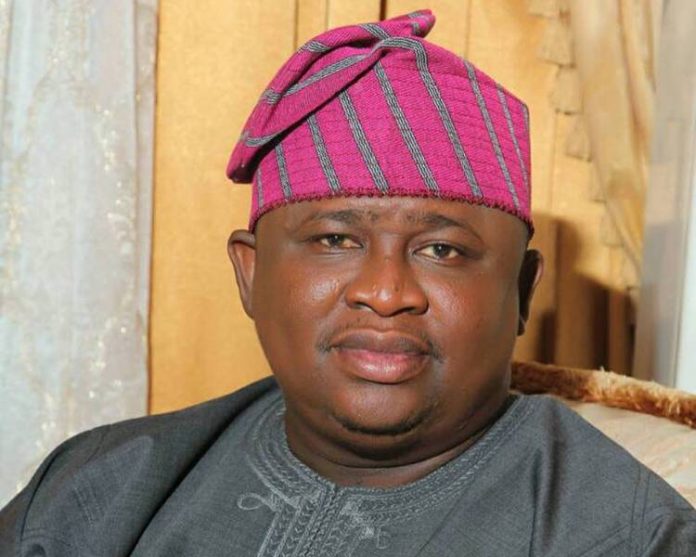
Once reputed as the freest press in Africa, the Nigerian Press is sliding down on a quick pace as one of the worst. The litany of the subterfuge against the press in Nigeria is reaching a crescendo during this administration of President Muhammadu Buhari and the ruling party. It is like a premeditated onslaught to bring the press on its knees to assuage the whims and caprices of those who hold the levers of power.
We are witnesses to these significant events that have blighted the record of Nigeria as a press friendly nation. It has become an incremental foray in the ignominy of incessant attacks on the press and freedom of speech generally. The zenith, so far, of that ignominy is contained in the recent amendment of the Nigerian Broadcasting Code (NBC) conceived, nurtured and birthed by the Minister of Information and Culture, Lai Mohammed who gleefully announced those ignominious provisions. One of such amendments to the Code is the increase in fine for hate speech violation from 500,000 Naira to Five Million Naira and the subsequent imposition of the fine on a Lagos-based radio station, Nigeria Info 99. 3FM.The whole scenario wreaks of high handedness.
Let us look at the hate speech phenomenon on which I have carried out academic research in recent times. There is no universally accepted definition of hate speech. The possible effect of hate speech is determined by some five criteria that have no universal application. They are moderated by specific sociological and political variables that are shifting with time and circumstances. The implication of such shifts in circumstances in the political context is the possible manipulation by those who hold the levers of power. It is my view that in the current Nigerian situation, the hate speech posture of the government is a veneer for silencing dissenting views and imposing a spiral of silence on an increasingly disillusioned polity in a situation of a rising frustration of expectations. The evidence for this is the haste and unilateral route in packaging and announcing amendments to the Code.
The expectation was high; the deliverables were mouth-watering at the onset of this administration. Not a few thought that the Fundamental Objectives and Directive Principles of State Policy as listed in chapter two of the 1999 Constitution of the Federal Republic of Nigeria as Amended was inching towards implementation. But what we have witnessed is a regression to the dark days of blatant disregard for the rights and basic humanity of the average Nigerian.
Back to the hate speech phenomenon. In hate speech scholarship, five criteria are generally recognised in assessing the possible impact of hate speech on the polity: The status of the speaker, the reach of the speech, goals of the speech, the content of the speech and the surrounding climate(social/economic/political). Even if all of these are present in a particular hate speech, it is no guarantee that it will have impact in the society. What is considered hate speech by government might just be an early warning signal for society to arrest a deteriorating situation.
So the definition of hate speech has to be socially defined and recognised irrespective of what the government of the day feels. Some speeches are necessary to galvanize actions from the holders of the levers of power, more so, as a feedback from the populace on possible implications of certain actions on the society. Patriotism is said to be the refuge of every scoundrel. We are witnesses to the idea of national security being appropriated as the personal interests of those in power.
For a phenomenon that has no universal definition, caution must be the watchword. The fake speech debate gained prominence when President Donald Trump became the president of the world’s most powerful nation, USA. Every news that did not suit his agenda he regarded as fake news. We had Decree Four of 1984 during the military regime of General Muhammadu Buhari which criminalized truth if the truth embarrassed the government or any of the officials. Under that decree Tunde Thompson and Nduka Irabor went to jail for a report that embarrassed the government. Are we back to that period? Buhari had earlier told Nigerians in an interview that he would tamper with press freedom. Are we back to those days?
In the particular circumstances that led to a fine being imposed on a radio station, there are many questions begging for answers. Not the least of these is whether the National Broadcasting Commission (NBC) can be the accuser, judge and executioner in its own case. Another poser is whether they have the right to impose fines in the first place. The board of NBC has also disowned the purported amendment to Nigerian Broadcasting Code.
I believe our positive minded legal luminaries will not allow these anomalies to reign supreme. We need to guide against a situation where any government agency can accuse the media of breaching a law and apply sanctions immediately without recourse to the judiciary. Such dictatorial tendency must not be allowed to exist in any democratic setting.
From conception to implementation, the amendment to the Broadcasting Code has been trailed by controversies. It is obvious from reactions of stakeholders that there were no industry-wide consultations before the amendments were foisted on the public. The backlash generated by the proposed review among critical stakeholders pointed to the fact that enough consultations were not made or observations of stakeholders were not properly captured in the proposed amendment. Indeed, the NBC recognized this shortcoming when in a subsequent publication, “resolved that fresh invitations be extended to all stakeholders in the industry especially those with genuine observations aimed at improving the quality of broadcasting in Nigeria. (Thisday, June 26, 2020). NBC reversed itself on this score by ignoring voices that called for caution. Such voices include that of Nobel-laureate, Professor Wole Soyinka.
Mercifully, more voices have been speaking against this anomaly. Former director-general of Nigerian Television Authority (NTA), Tonnie Iredia who spoke on Channels Television recently said the minister has hijacked the duties of the director-general of the NBC.
He said: “Everybody expects a broadcasting commission to be an autonomous body that has no place in politics. If you listen to the news, who has been speaking? The Minister of Information. Is he the director-general of the NBC? When the minister is speaking, there is no way broadcasters can see that the regulator is speaking. He is not a regulator. He should leave the broadcasters in the NBC to do their professional duty. The law gives him the right to supervise but not to take over the job.
The moment the minister is speaking, no matter how well-intentioned he may be, the people become suspicious because he belongs to a political divide and whatever he says is likely to be used against the opposition and I think this is a natural thing.” I hope the minister will listen to these voices, step back and allow things to run as they should. His shadow over the NBC erodes the credibility of whatever comes out of the commission as a professional outfit.
As it turns out, not even the internal mechanisms were exhausted, judging by the rejection by the Board of NBC. In a press statement, the Board disowned the amendment to the 6th Code noting that from the history, traditions and the convention of the NBC, no Minister of Information has ever interfered in NB Code review. The Board rightly observed that the code “is a regulatory framework put together jointly by stakeholders to guide their operations in the industry. It is therefore not a unilateral government instrument.” Thus, the Minister ought to have allowed due process if he genuinely feels that there is need for amendment.
The posture by the Minister in privileging legal option over other mechanisms for stemming hate speech has not helped matters. A holistic look at the sociology of hate speech will put Nigeria in a better position to counter it. Besides, there are many other laws in our statute books that can tackle hate speech and related offences.
Nobody is advocating a situation where hate speech dominates the air. It is just that governments throughout history cannot be allowed to be the sole determinant of what is and what is not hate speech. When a government believes a hate speech has been uttered, it must go through a judicial process instead of an instant judgement. The media are also duty bound to undertake regular assessment of their internal mechanisms for self-regulation and stick to professional and ethical standards. More education and awareness on how to recognize hate speech and report conflict-sensitively on it is what the media need. Civil society groups and media training organizations have been doing that but a lot more needs to be done. Constant capacity building workshops should not be ignored. That role cannot be outsourced to government. A vibrant press is the one that uncovers what governments would rather put under cover.
Dr Jimoh is a press freedom advocate and journalism lecturer at the Lagos State University. Email: [email protected].






